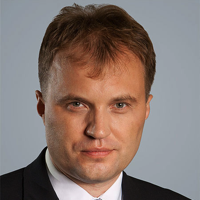On Dec. 25, 43-year-old Yevgeny Shevchuk was elected president of Transnistria by a landslide, winning nearly 80 percent of the vote in a runoff after outmaneuvering two powerful and seasoned opponents. It was a triumph for democracy in a remote corner of Southeastern Europe that few outside the neighborhood would have had any reason to notice.
But it is worth taking note, not only because Shevchuk is a young reformer in a part of the world groaning under entrenched oligarchies, but also because his successful campaign offers a larger lesson at a time when popular democratic movements are shaking the foundations of governments worldwide.
The good news is that if democracy can triumph in Transnistria -- where a stylized Lenin stands watch over the presidential offices, the hammer and sickle adorn the official seal and Russian Prime Minister Vladimir Putin is a local hero -- it can do so anywhere. This sliver of Dniester River frontage sandwiched between Moldova and Ukraine is one of Europe’s poorest regions, and it is still recovering from the bloody fighting and social upheaval that accompanied its secession from Moldova after the collapse of the Soviet Union. Yet when Transnistrians cast their ballots, they made a conscious choice in favor of reform, transparency and accountability over the old ways of stagnation, cronyism and intimidation.

